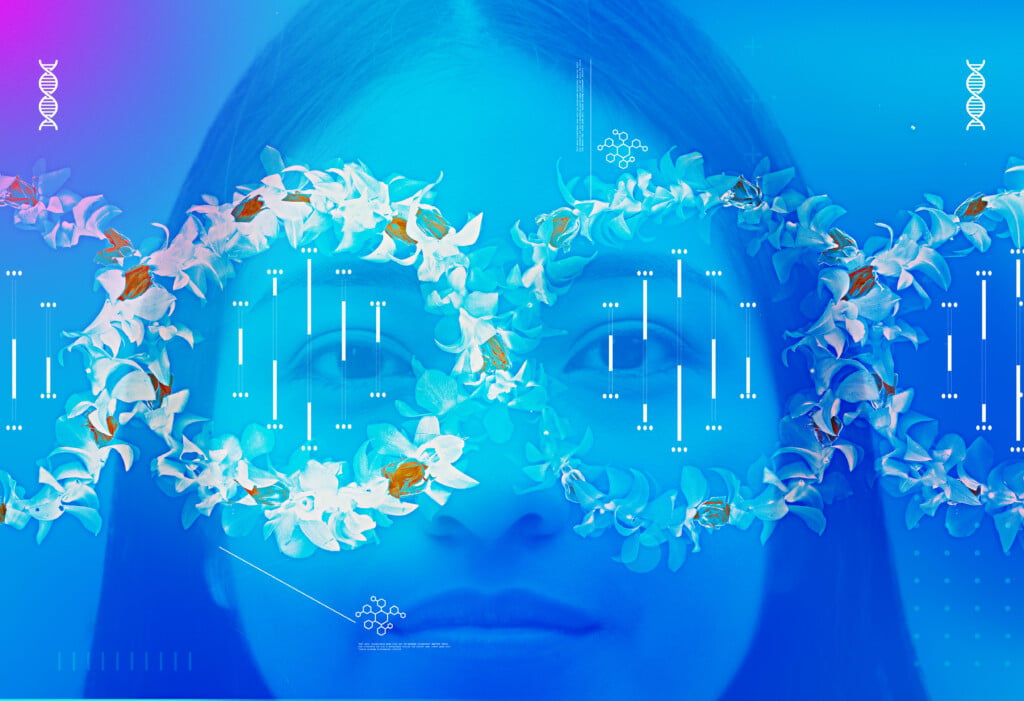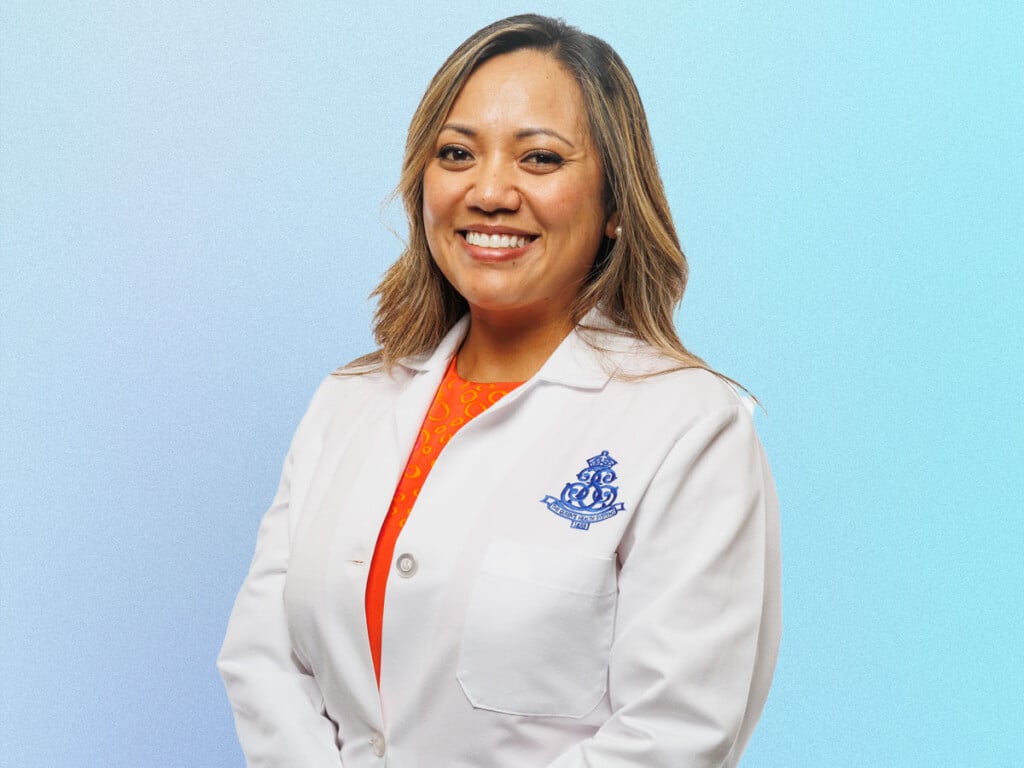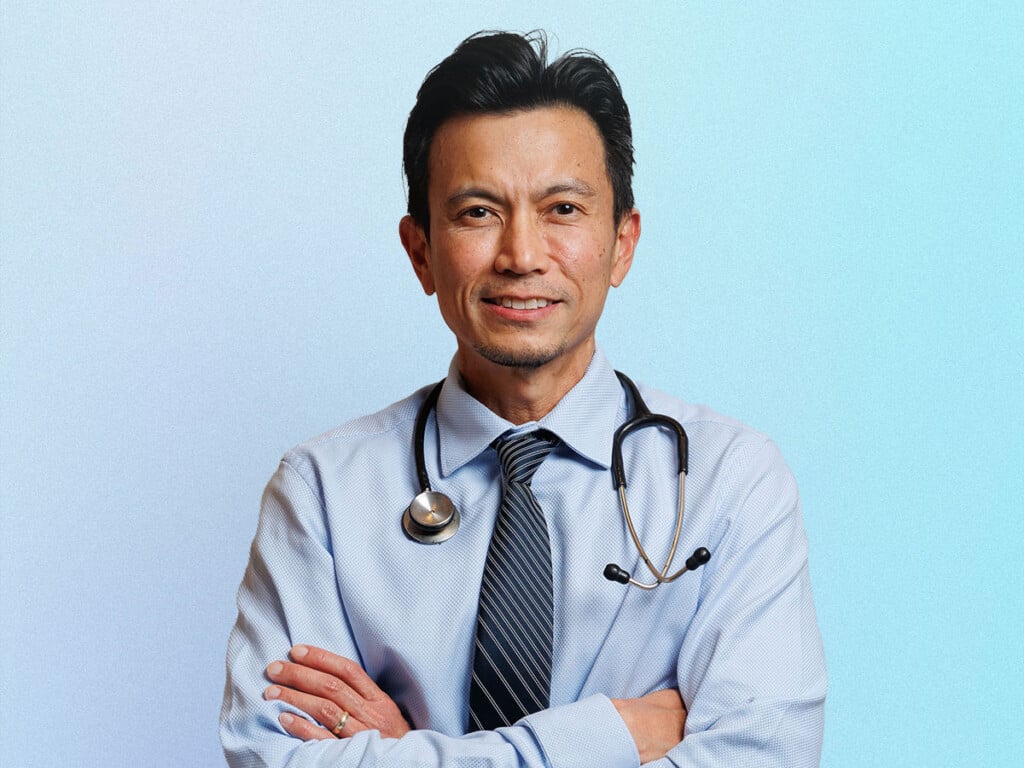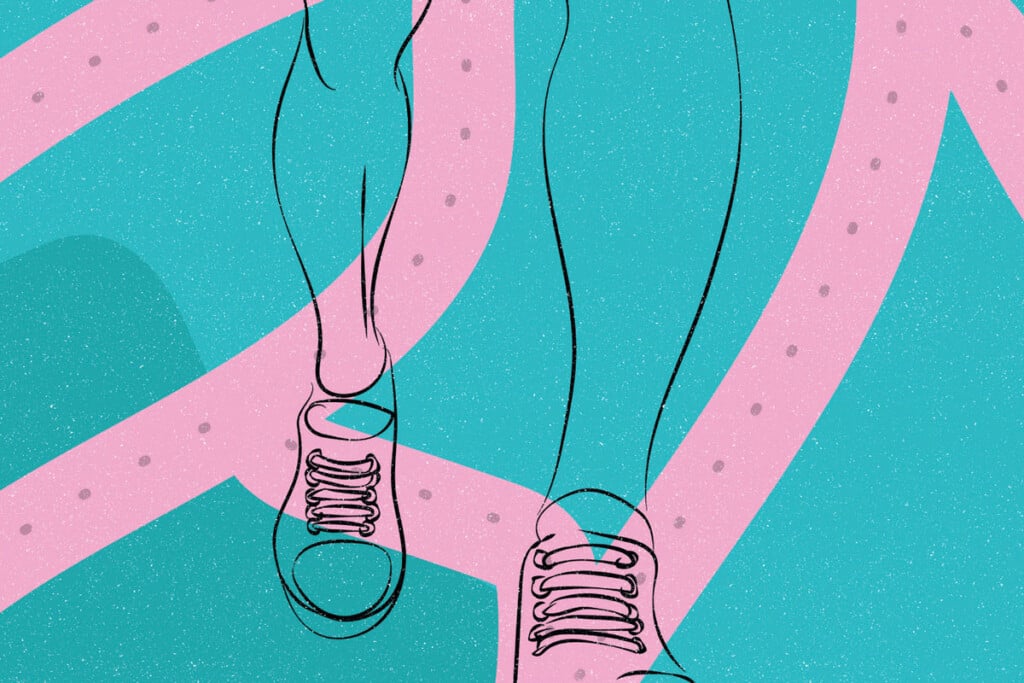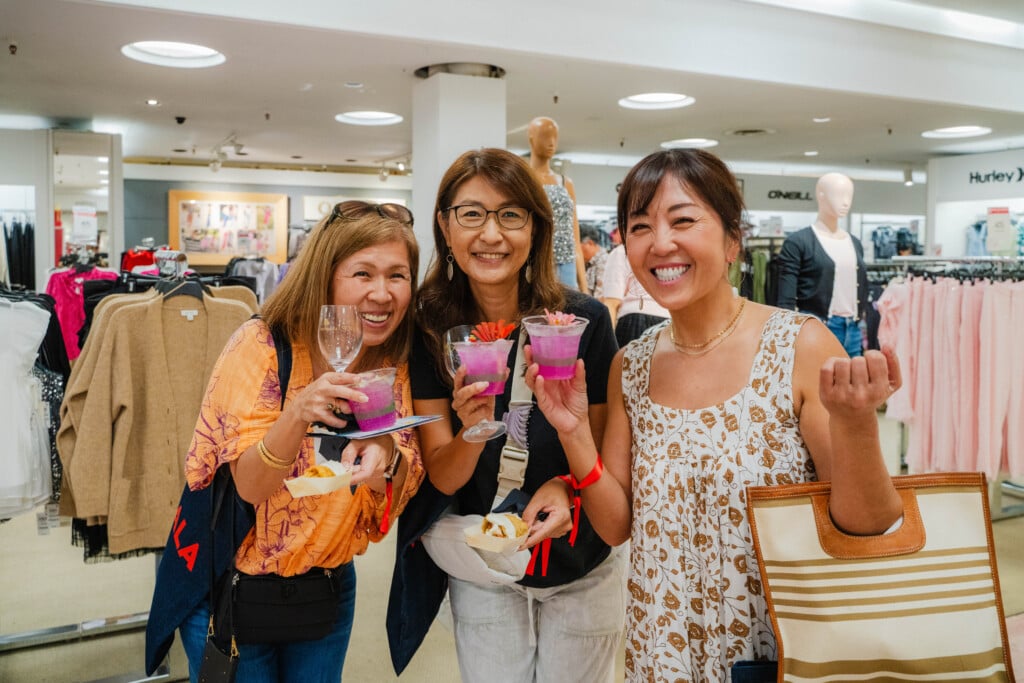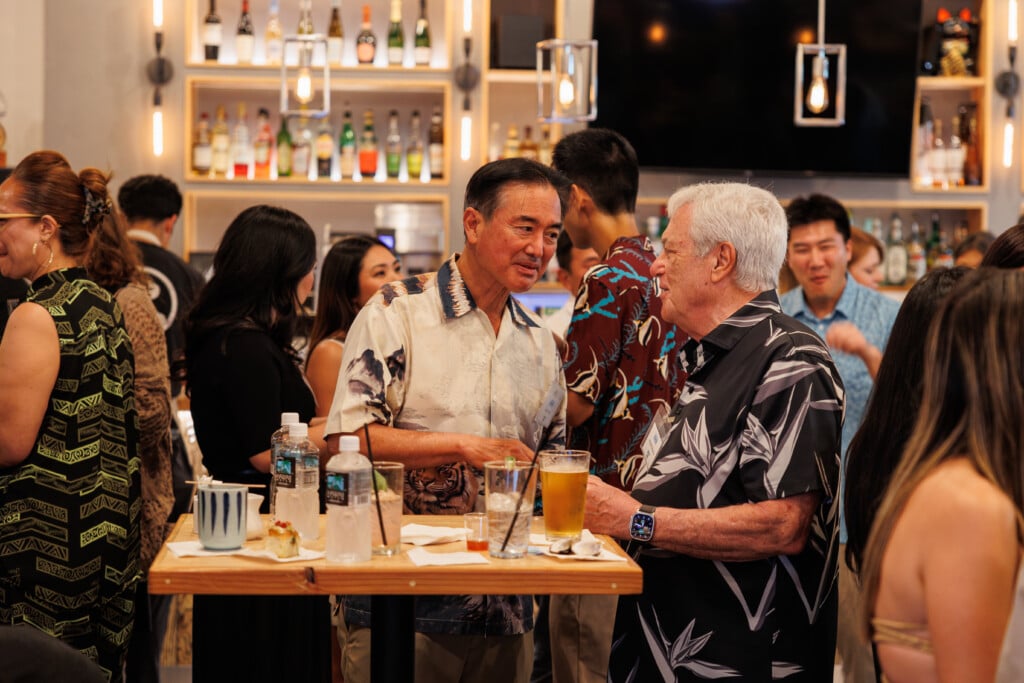No Brainer
Whether you’re young or old, taking care of your brain is key.
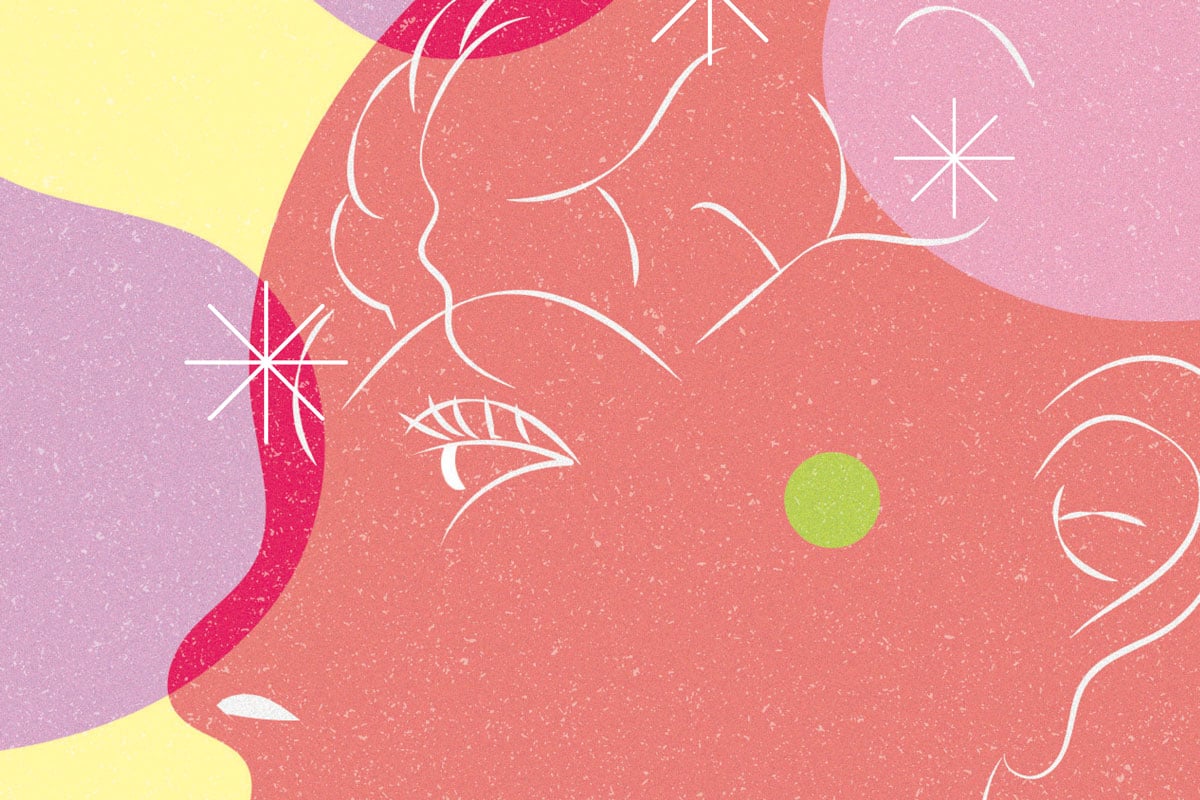
“You can continue to generate new brain cells as an older person,” she says. “Simply, the more you exercise the brain, the more brain cells you have.”
— Jackie Boland, AARP Hawai‘i’s community outreach director
Dr. Kazuma Nakagawa knows how far medicine has come to help those with serious neurological disorders. As chief of The Queen’s Medical Center’s Neuroscience Institute and medical director of the Comprehensive Stroke Center, he also knows medicine has limits—and that healthy choices are vital to stave off problems in the brain.
It’s why he’s launching the Brain Health Applied Research Institute, an innovative hub, whose motto is “one habit at a time.” After a stroke, for instance, the brain has potential to “rewire” and restore lost function with therapeutic activities, but patients aren’t always educated on self-care. Roughly 40% of dementia cases are preventable with healthy choices, like exercising regularly, Nakagawa says. Many don’t realize this, so he wants to create a place to help people nurture their brains.
People should embrace healthy activities they love, such as surfing, dancing and art, which benefit the brain, he adds. The institute has tapped an eclectic group of experts, including a chef, oceanographer and musicians, to drive those points as it moves forward with a Waipahu campus. “It’s not just a dream—it’s in the works,” Nakagawa says.
As AARP Hawai‘i’s community outreach director, Jackie Boland also talks about brain health—what’s good for it, what’s not, and lifestyle tweaks to help it function. At 54, she’s noticed changes in her own brain. It’s harder to remember things on lists, she says, and like many of her friends, she’s walked into a room to do something, then forgotten what it is.
Boland wants to bust myths about the aging brain, chiefly that people should give up on learning new things in their 60s, 70s and beyond. In fact, the opposite is true. “You can continue to generate new brain cells as an older person,” she says. “Simply, the more you exercise the brain, the more brain cells you have.”
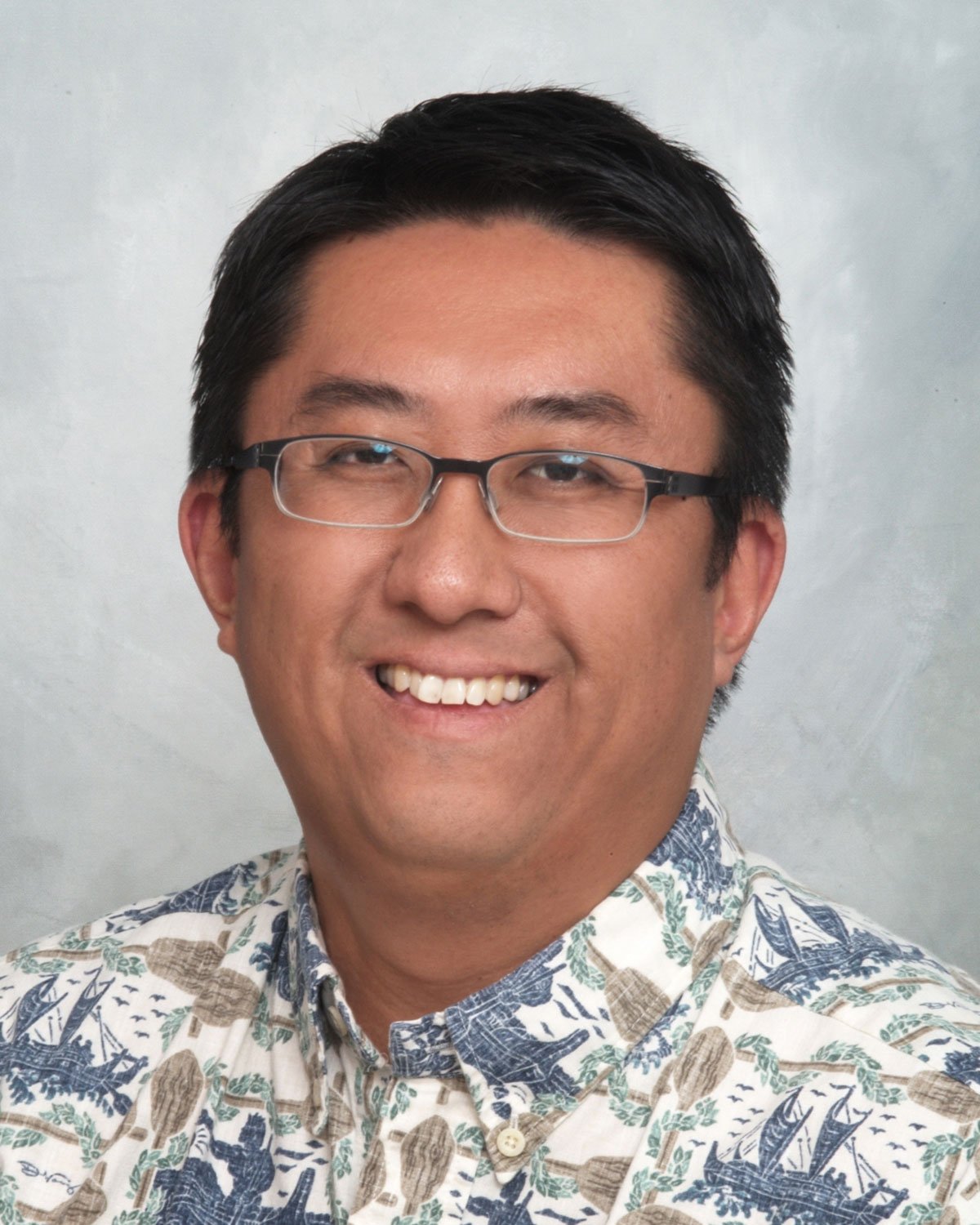
“The brain is the seat of human consciousness. You can’t replace the brain. You get one chance.”
— Dr. Huidy Shu, Hawai‘i Pacific Health’s chief of medical subspecialties and a neurologist at Pali Momi Medical Center
The brain’s importance, and its significance on our overall health, has made headlines in recent years. And while the brain still remains a mystery, scientific advances have offered new techniques for treating brain injuries and stroke, as well as new medications for age-related brain disorders, including Alzheimer’s disease.
Dr. Huidy Shu, Hawai‘i Pacific Health’s chief of medical subspecialties and a neurologist at Pali Momi Medical Center, is particularly excited about an emerging class of drugs for Alzheimer’s. FDA-approved drug treatments for the disease have been around for more than two decades, and he says they work by helping manage symptoms, but without treating underlying causes of the progressive disorder, which in Hawai‘i afflicts about 1 in 10 people over 65. But a monoclonal antibody medication approved last year, called Lecanemab, actually removes protein believed to cause Alzheimer’s.
Shu says over about 18 months, Lecanemab can reduce the toxic protein beta-amyloid by more than 60% in patients treated early enough. Donanemab, an even newer drug that works much the same way, can reduce it by 90%. The treatments, Shu says, are a breakthrough but not a cure. He cautions that monoclonal antibody medications aren’t appropriate for those who have suffered moderate or severe irreversible brain damage from the disease. And Shu also points out that Alzheimer’s disease only accounts for about 50% of all dementia cases. “It’s the most common by far, but it’s not the only thing,” he says.
At clinics on O‘ahu, Brain Health Hawai‘i is also offering a cutting-edge treatment—designed to help alleviate the symptoms of everything from concussions to depression to migraines. It’s called transcranial magnetic stimulation, and it works by stimulating the brain’s nerve cells, says Angela Keen, who took a job as Brain Health Hawai‘i’s communications and marketing director after treatments there helped her overcome long COVID.
The noninvasive procedure isn’t recommended as the first option for patients with major depression, but it may be the fourth or fifth—after traditional medications have failed. Keen notes that 65% of the company’s patients are active-duty military or veterans. Many are seeking care for traumatic brain injuries or post-traumatic stress disorder.
Shu says that while new treatments for brain disorders are promising—and continuously coming to market—they “are almost never the answer alone.” Even when a pill or a procedure works, patients should be assessing their diet and activity levels, he says.
For Shu, that advice has become personal. He recently was diagnosed with diabetes, something of a wake-up call for a doctor who knows how important a healthy diet is to a healthy brain. Shu often reminds his patients to be careful about putting the right type of fuel in their cars. “What I tell them is when you celebrate, celebrate. But for most everyday meals,” he says, “you should be eating the best fuel for your brain.”
He also believes it’s not just older people who should be concerned about brain health. While you may a regular at the gym, Shu says keeping your brain healthy for as long as possible is just as important, maybe more so. After all, you aren’t you without your brain. “The brain is the seat of human consciousness. You can’t replace the brain,” he says. “You get one chance.”
The good news is that common healthy habits, such as eating healthy and exercising regularly, can keep our brains sharp. When it comes to protecting your brain over a lifetime, three things are essential: Use your brain by learning new things; do what you can to avoid brain injuries, including taking precautions when playing sports; and try to avoid so-called “toxic injury” to your brain, including from harmful chemicals found in cigarettes, drugs and pollution, Shu says. And if you think there might be a problem, seek medical help—early.
SEE ALSO: A Reset and Resync

How to keep your brain healthy
• Socialize: Loneliness can increase your risk of getting dementia.
• Keep your brain active and don’t be afraid to learn (or try) new things.
• Manage stress, which can negatively impact memory and cognition.
• Exercise regularly for a healthier body—and brain.
• Eating healthy is also key to brain health. Even small changes can help.
• And get those eight hours. Your brain needs restorative sleep.
Source: AARP
